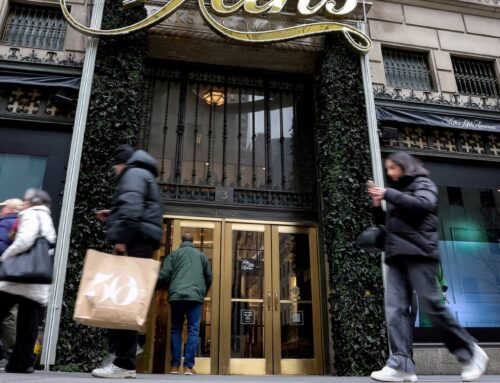Judge blocks Oregon’s cannabis labor neutrality law
June 5, 2025
Oregon’s new cannabis industry labor neutrality law was blocked by a federal judge in a May 20 order. U.S. District Court Judge Michael Simon found that Measure 119, which voters approved last November, violates employers’ First Amendment right to free speech and is preempted by the National Labor Relations Act under a longstanding U.S. Supreme Court precedent.
In response, the Oregon Liquor and Cannabis Commission (OLCC) announced May 29 it would no longer require cannabis processors or retailers to submit labor peace agreements when they renew their cannabis licenses. Measure 119 had required that employers submit labor peace agreements signed by a legitimate union, pledging to remain neutral in unionization efforts.
Two marijuana businesses in Portland — Ascend, a dispensary, and Bubble’s Hash, a processor — had filed a lawsuit opposing Measure 119.
Simon ruled that the law’s requirement that employers remain neutral violated their right to free speech. The National Labor Relations Act prohibits threatening or false speech, but employers can still express their opinions about employees unionizing.
Under Measure 119, employers must sign a labor peace agreement in which they agree to remain neutral when union organizers approach their employees.
At an April 29 hearing on the merits of the lawsuit, attorneys for the State of Oregon argued that employers could remain neutral while still expressing their opinions. Simon did not find that argument convincing.
The plaintiffs also argued that Measure 119 disregarded an employee’s right to choose their own labor representation, which is guaranteed under the National Labor Relations Act. Ascend said it was told only two unions — UFCW Local 555 and Teamsters — had the authority to sign a labor peace agreement under Measure 119, though OLCC said it never made authorizations about specific unions that could sign labor peace agreements.
UFCW Local 555 lobbyist Mike Selvaggio said the ruling conflicts with a recent ruling in a similar lawsuit in California, in which a federal judge dismissed a dispensary’s challenge to California’s labor peace agreement law.
“One of these rulings is destined to be overturned on appeal. Our strong suspicion is that Judge Simon’s opinion, which flaunts Supreme Court precedent, will be the one reversed,” UFCW Local 555 said in a statement.
As of May 30, a spokesperson for Oregon Attorney General Dan Rayfield said his office was still reviewing the possibility of appealing the judge’s ruling.
U.S. District Judge Todd Robinson dismissed the California lawsuit on March 12 under the “unclean hands” doctrine, which says that a court’s power shouldn’t be used to provide relief to a plaintiff engaged in illegal conduct. Since cannabis is still illegal at the federal level, Robinson ruled that the plaintiff, a dispensary called Ctrl Alt Destroy, has unclean hands.
Even when the plaintiff has unclean hands, legal precedent says the case should move forward if there is significant value to the public. But Robinson wrote in his decision that the case did not involve substantial public interest because the state hadn’t obstructed Ctrl Alt Destroy’s federal rights. “Instead, the (labor peace agreement) sections are a reasonable attempt to regulate a newly legalized commercial industry,” Robinson wrote.
But California and Oregon’s cannabis labor laws aren’t identical.
California only requires labor peace agreements for cannabis businesses with at least 10 employees. Oregon requires the agreements regardless of size.
California says that under the labor peace agreement, the labor organization agrees not to picket, boycott, or otherwise economically interfere with the business, while the employer agrees to provide the labor organization with reasonable access to meet with employees and not disrupt efforts by the labor organization to communicate with or attempt to organize workers. Unlike Oregon, California’s statute doesn’t say the employer has to remain neutral.
Search
RECENT PRESS RELEASES
Related Post


